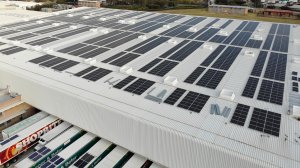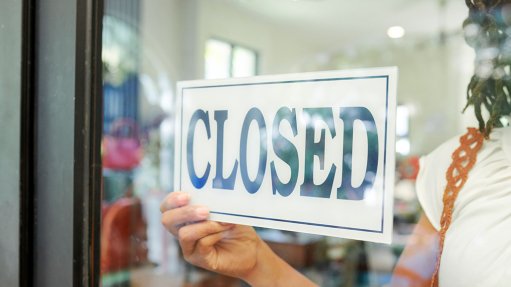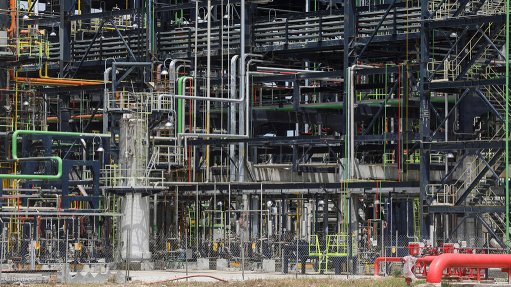Opinion: Climate – lead, follow or get out of the way
In this opinion article, Shoprite group sustainability manager Sanjeev Raghubir writes that conferences are necessary for progress on crucial issues facing humankind, but on the existential crisis of climate change, Africa simply cannot continue waiting for consensus.
The twenty-eighth Conference of the Parties (COP28) Summit, which is being held in Dubai might seem far away from the daily struggles and concerns of ordinary people: it’s hard to spend time pondering how to get governments to enforce cuts in greenhouse-gas emissions when you and your family are hungry and your daily commute is complicated by loadshed traffic lights or climate-related floods and storms.
Even for those invested in halting climate change, there’s a level of “COP fatigue”, a trend acknowledged by environmental nongovernmental organisations. There have, after all, been nearly three decades of global effort with – many might argue – relatively little to show.
It certainly hasn’t been for lack of effort.
Considering these facts, what should business do? First, we must recognise that any entity that has the capacity to affect change has a responsibility to do so: Theodore Roosevelt’s ethos of “Do what you can, with what you've got, where you are.” That includes cross-sectoral cooperation with civil society, business and government. As Africa’s largest retailer, we feel that responsibility more keenly than ever.
Second, we must redouble our focus on climate-proofing poor communities where we can. This becomes crucial as climate change drives extreme weather and increases the likelihood of floods, fire, drought and the emergence of climate refugees. Like a conference in Dubai, a melting icecap in the Antarctic might seem far away, but its impacts will be felt in our homes, in the fields where the crops that feed us are grown, in the rivers that irrigate those crops, and the seas from which we harvest the affordable protein that sustains millions.
The tragic irony of climate change is that those who have the smallest carbon footprint – and whose choices impact the least on climate change – are already affected the most. This was brought home with brutal force in 2021 when the deluge delivered by Cyclone Eloise destroyed the bulk of the national tomato crop, leading to shortages and price increases. Potatoes, carrots and cauliflowers were affected to a lesser extent but any such crisis will harm the poor.
The KwaZulu-Natal provincial government estimates that repairs following last year’s floods cost about R17-billion. It’s unclear for now whether areas affected will be better prepared as extreme weather becomes more frequent.
Third, and lastly, we can’t afford to wait: Action on climate change is too important and urgent for any of us to bide our time for an ideal opportunity, because global warming and the crises it brings are by their nature inconvenient.
This point is important because there are factors and forces that stall impetus on the issue. Just one aspect is the seemingly intractable tussle between the developing and developed worlds: Who should cut emissions, and who should pay. This can be frustrating for those of us who already see the impacts of climate change, and who’re acting on that.
The African Union is concerned that despite Africa having an estimated 40% of the world’s renewable energy resources, only $60-billion, or 2%, of $3-trillion global renewable energy investments in the last decade have come to Africa.
The inaugural African Climate Action Summit, in Nairobi, in September, yielded the Nairobi Declaration, which commits the signatory member States of the African Union to, among other things, implement all the necessary reforms and support required to raise Africa’s share of renewable energy financing to at least 20% by 2030.
It also calls on the international community to provide funding to increase Africa’s renewable generation capacity from 56 GW in 2022 to at least 300 GW by 2030, “both to address energy poverty and to bolster the global supply of cost-effective clean energy for industry.”
Well and good. But those who follow energy news will note too that Africa’s leaders are by no means in wholesale agreement with moving away from fossil fuels. And there are powerful lobbies to encourage them. That much was evident at last month’s African Energy Summit in Cape Town, where various parties voiced vocal support for increasing – not decreasing – Africa’s dependence on fossil fuels.
What can we do about that? For a start, we must recognise that reining in greenhouse gas emissions and rolling out renewable energy achieves more than just slowing the warming of the world: It also addresses the obstacles of prosperity, human dignity and health. Nowhere is this more apparent than in Africa, where 400-million people have no access to clean drinking water and 700-million lack proper sanitation. Just one enticing prospect is the progress in renewable energy, combined with battery storage and microgrids to power off-grid agroprocessing and cold storage.
In South Africa, this holds promise: “islands” of self-generation can help insulate our food security from loadshedding as well as climate change. Such progress can yield multiple benefits, such as meeting some of the Sustainable Development Goals.
We must fight stasis and lassitude with a sense of urgency. Climate-linked extreme-weather disasters like the recent floods in Libya are – tragically – likely to become more frequent.
Despite these warnings, many nations and polluting industries are failing to slow their emissions. South Africa will miss its legally binding 2030 carbon emissions targets under the Paris climate agreement by running eight coal-fired power stations longer than planned. The world's eleventh biggest greenhouse-gas emitter, with one of the world's highest per capita emissions, South Africa had committed to cut emissions to between 350-million and 420-million tons by 2030, from 442-million tons in 2020.
Several rich countries and major petrochemical companies are backtracking on their climate pledges, and recently the United Nations said fossil-fuel output by 2030 will be more than double levels consistent with the 2015 Paris climate goals.
Envoys who met in Bonn, Germany, in June to prepare for COP28 noted a grim milestone: The target of keeping long-term global warming within 1.5 °C is moving out of reach, with industrialised nations failing to set more ambitious goals despite months of record-breaking heat on land and sea.
Debate and consensus are part of what makes us human. But on the existential crisis of climate change, action is what matters now. We must invoke Roosevelt’s ethos of doing whatever we can and be guided by the words attributed variously to Confucius, George Bernard Shaw and others: “People who say it cannot be done, should not interrupt those who are doing it,” and to General George S Patton: “Lead, follow or get out of the way.”
Article Enquiry
Email Article
Save Article
Feedback
To advertise email advertising@creamermedia.co.za or click here
Press Office
Announcements
What's On
Subscribe to improve your user experience...
Option 1 (equivalent of R125 a month):
Receive a weekly copy of Creamer Media's Engineering News & Mining Weekly magazine
(print copy for those in South Africa and e-magazine for those outside of South Africa)
Receive daily email newsletters
Access to full search results
Access archive of magazine back copies
Access to Projects in Progress
Access to ONE Research Report of your choice in PDF format
Option 2 (equivalent of R375 a month):
All benefits from Option 1
PLUS
Access to Creamer Media's Research Channel Africa for ALL Research Reports, in PDF format, on various industrial and mining sectors
including Electricity; Water; Energy Transition; Hydrogen; Roads, Rail and Ports; Coal; Gold; Platinum; Battery Metals; etc.
Already a subscriber?
Forgotten your password?
Receive weekly copy of Creamer Media's Engineering News & Mining Weekly magazine (print copy for those in South Africa and e-magazine for those outside of South Africa)
➕
Recieve daily email newsletters
➕
Access to full search results
➕
Access archive of magazine back copies
➕
Access to Projects in Progress
➕
Access to ONE Research Report of your choice in PDF format
RESEARCH CHANNEL AFRICA
R4500 (equivalent of R375 a month)
SUBSCRIBEAll benefits from Option 1
➕
Access to Creamer Media's Research Channel Africa for ALL Research Reports on various industrial and mining sectors, in PDF format, including on:
Electricity
➕
Water
➕
Energy Transition
➕
Hydrogen
➕
Roads, Rail and Ports
➕
Coal
➕
Gold
➕
Platinum
➕
Battery Metals
➕
etc.
Receive all benefits from Option 1 or Option 2 delivered to numerous people at your company
➕
Multiple User names and Passwords for simultaneous log-ins
➕
Intranet integration access to all in your organisation





















